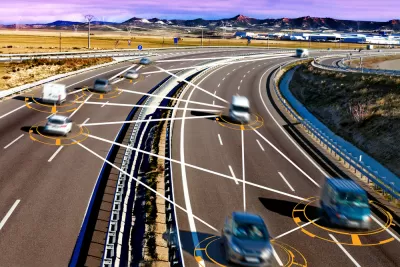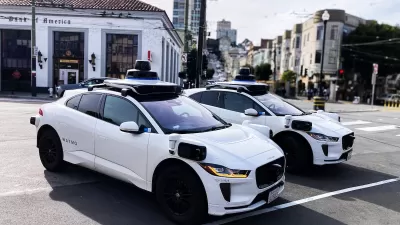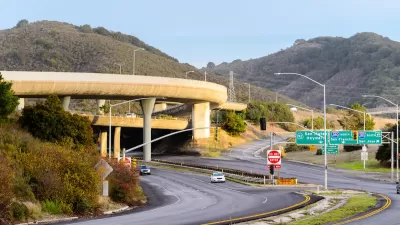The complex algorithms used by self-driving vehicle technology use massive amounts of energy, which could lead to a steep rise in carbon emissions as autonomous cars become more commonplace.

A new study from the Massachusetts Institute of Technology (MIT) warns that, without changes in technology, the growth of autonomous vehicles will spur massive energy consumption. As Rima Sabina Aouf reports in Dezeen, “The study found that with a mass global takeup of autonomous vehicles, the powerful onboard computers needed to run them could generate as many greenhouse gas emissions as all the data centres in operation today.”
As Aouf explains, “The high emissions are the result of the huge computing workload placed on each self-driving vehicle.” The vehicles use ‘deep neural networks’ to constantly make inferences that drive decisions. According to the study, “One billion vehicles would make 21,600 trillion inferences. To put that into perspective, the researchers say all of Facebook's data centres worldwide currently make a few trillion inferences each day.”
Study co-author Soumya Sudhakar says that “If we just keep the business-as-usual trends in decarbonisation and the current rate of hardware efficiency improvements, it doesn't seem like it is going to be enough to constrain the emissions from computing onboard autonomous vehicles.”
Autonomous car manufacturers can get ahead of the problem by working to improve the efficiency of their hardware and algorithms. “In a scenario where 95 per cent of global vehicles are autonomous in 2050, the study suggests that the technology's efficiency must double about every 1.1 years, such that each autonomous vehicle is consuming less than 1.2 kilowatts of energy for computing.”
FULL STORY: MIT study finds huge carbon cost to self-driving cars

Planetizen Federal Action Tracker
A weekly monitor of how Trump’s orders and actions are impacting planners and planning in America.

Congressman Proposes Bill to Rename DC Metro “Trump Train”
The Make Autorail Great Again Act would withhold federal funding to the system until the Washington Metropolitan Area Transit Authority (WMATA), rebrands as the Washington Metropolitan Authority for Greater Access (WMAGA).

DARTSpace Platform Streamlines Dallas TOD Application Process
The Dallas transit agency hopes a shorter permitting timeline will boost transit-oriented development around rail stations.

Supreme Court Ruling in Pipeline Case Guts Federal Environmental Law
The decision limits the scope of a federal law that mandates extensive environmental impact reviews of energy, infrastructure, and transportation projects.

Texas State Bills to Defund Dallas Transit Die
DART would have seen a 30% service cut, $230M annual losses had the bills survived.

Bikeshare for the Win: Team Pedals to London Cricket Match, Beats Rivals Stuck in Traffic
While their opponents sat in gridlock, England's national cricket team hopped Lime bikes, riding to a 3-0 victory.
Urban Design for Planners 1: Software Tools
This six-course series explores essential urban design concepts using open source software and equips planners with the tools they need to participate fully in the urban design process.
Planning for Universal Design
Learn the tools for implementing Universal Design in planning regulations.
Roanoke Valley-Alleghany Regional Commission
City of Mt Shasta
City of Camden Redevelopment Agency
City of Astoria
Transportation Research & Education Center (TREC) at Portland State University
US High Speed Rail Association
City of Camden Redevelopment Agency
Municipality of Princeton (NJ)





























